Affiliate links on Android Authority may earn us a commission. Learn more.
When I'm buying tech, battery life is my top concern, not performance
Published onNovember 27, 2024
Whenever a company launches a new product, it almost always puts a massive emphasis on how much more powerful that product is. For recent smartphones, there are plenty of examples of this. During the launch of the Pixel 9 series, Brian Rakowski said, “We’ve got Pixel 9, the powerfully sophisticated Google phone, with an unbelievable upgraded camera, supercharged performance, and the latest AI features.” During the launch of the Galaxy S24 series, David Thompson said the phones are “designed to deliver exceptional performance and lightning-fast processing speeds.” And Kaiann Drance from Apple said during the launch of the iPhone 16 series, “The iPhone 16’s beautiful design is joined by powerful performance inside.” It’s clear that companies think better performance equals a better product.
This strategy makes sense, of course. Who doesn’t want their shiny new piece of tech to be more powerful than the previous model? However, I feel like this approach needs to be tweaked a bit. While performance gains are always great to have, they don’t necessarily need to be the most critical aspect of a new product. In fact, sometimes, increased performance can make the device less enticing overall because it can come at the expense of other features. I would argue that another detail needs more emphasis: battery life.
What do you value more: performance or battery life?
Day-to-day performance has all but plateaued
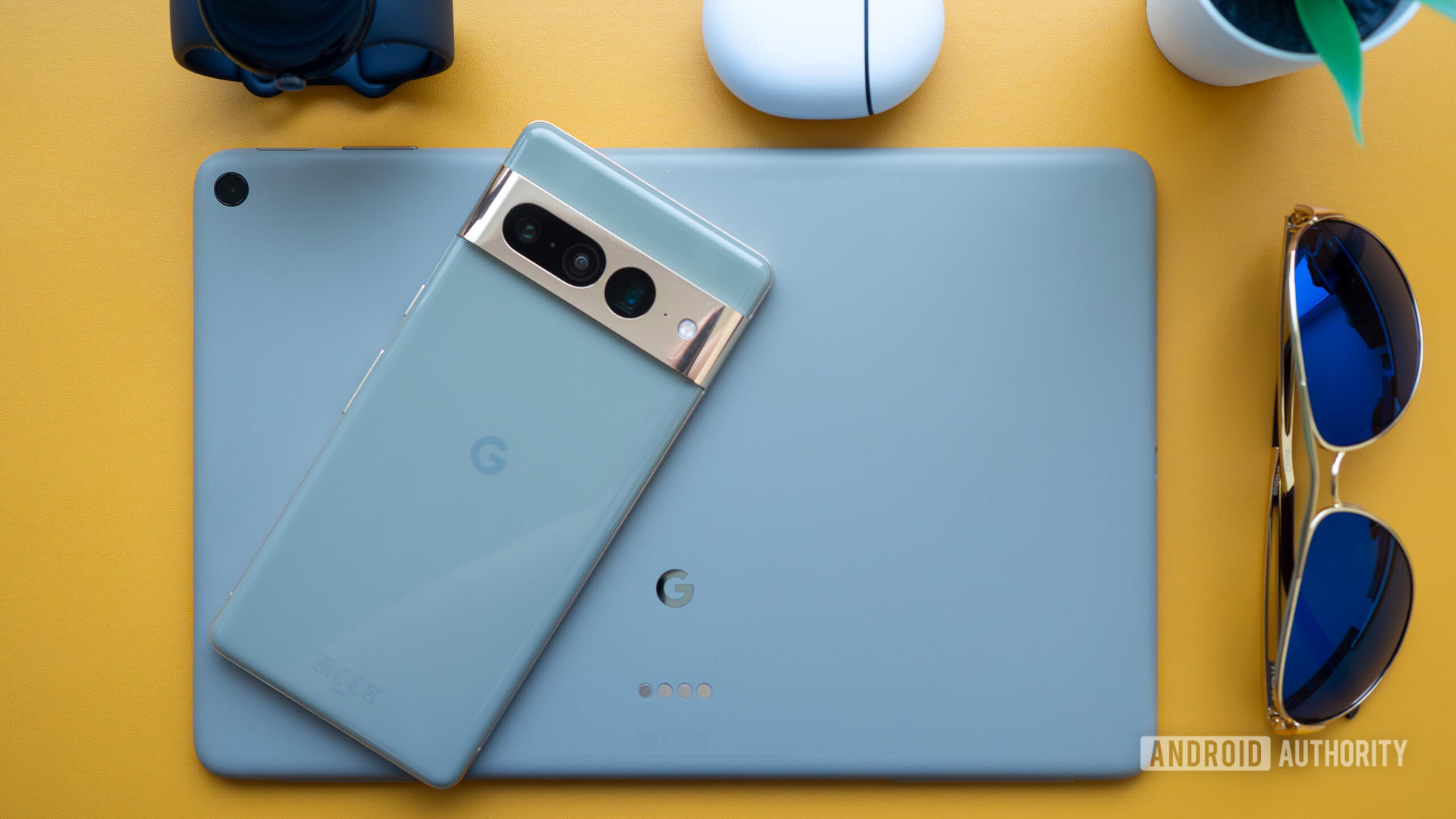
Let me be clear on my opinion with this: I am all about performance gains. When a new device lands and is more powerful than the previous generation, I see that as a good thing. I’m just like you in that I don’t want a slow, clunky piece of tech.
What I am seeing with a hyper-focus on performance, though, are two problems. The first is that performance gains are not substantial enough to get really excited about anymore. For example, the 2024 iPhones are faster than the 2023 iPhones, but not by much (note that these charts come after the iOS 18.1 update, which enhanced performance overall in the iPhone 16 series):
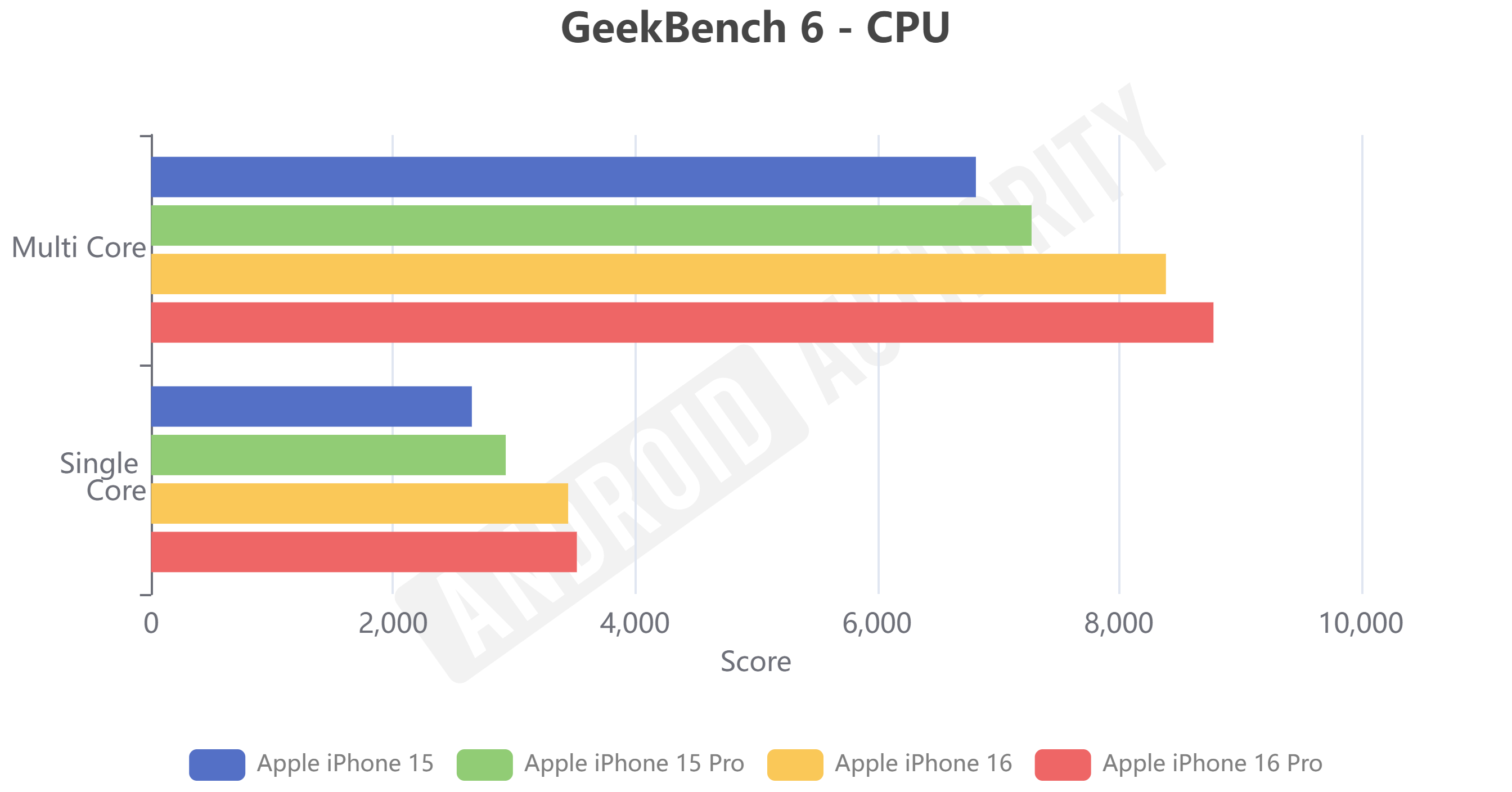
What we see here is that multi-core benchmarks perform better year-over-year, but single-core benchmarks don’t always have the same gains. But without a frame of reference for what these gains mean, discussing how much faster a product is has become an accurate but mostly useless statement. It’s like saying the Pixel 9 Pro XL’s display is larger than the Pixel 8 Pro’s — it’s a true statement, but we’re talking a literal tenth of an inch. Is that really going to make a difference in your life?
That brings me to the second problem with performance gains, which is how much they actually change a product’s day-to-day usage. Yes, your laptop might be able to render out a 10-minute 4K video 60 seconds faster than last year’s model, but does that really make your life better? Has the only thing preventing you from feeling satisfied with your laptop been the “loss” of those 60 seconds? I highly doubt it.
There are two problems with constantly chasing performance gains: those gains become less significant over time, and they don't much affect your day-to-day experience.
Meanwhile, the constant chase for these tiny performance upticks forces companies to spend comparatively less time on other features. This is where we come to battery life. Although battery life gains can sometimes go hand-in-hand with performance gains, we almost never see companies squarely focus on battery efficiency at the expense of performance. Sometimes, we’ve even seen worse battery life year over year, usually because OEMs are pushing for those performance gains at the expense of power efficiency!
This seems backward to me. Most of the tech I own is already plenty powerful — certainly powerful enough for almost all my daily tasks. But that doesn’t mean much if I can’t use that tech for extended periods of time without needing to constantly worry about when I’ll next be able to charge.
I would be fine if performance across the core tech products I use daily — smartphones, laptops, and smartwatches — stayed the same for the next few years or even decreased. If that meant I would see significant gains in battery life, I’d be all for it.
Smartphones are a perfect example of the performance/battery divide
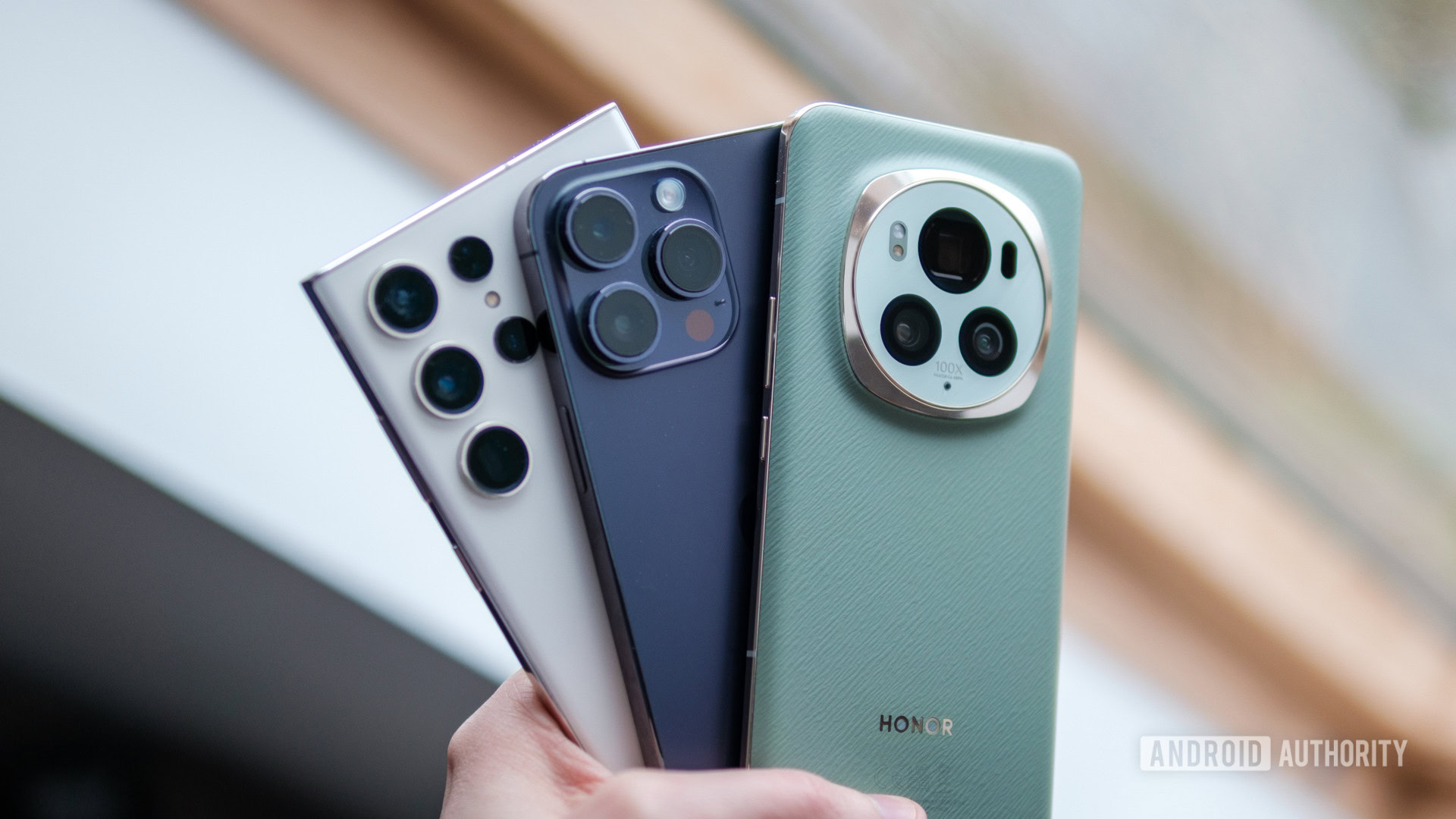
Previously, I gave you a chart showing off performance gains of iPhones, but Apple isn’t the only company touting relatively minor gains as a huge reason to upgrade your phone. Check out the charts below for more:
These two charts show that, similarly to Apple, both Samsung and Google are making significant performance gains in multi-core tasks but sometimes only nominal gains in single-core tasks. This means you’ll see notable increases in performance when it comes to very computationally exhausting multi-threaded tasks, such as rendering videos, but won’t feel those same gains in day-to-day things most smartphone users do. In other words, opening Instagram, watching YouTube, and sending an email could be technically faster on newer models, but not enough for you to notice.
Even gaming performance hasn’t changed much, especially when you compare some of the Snapdragon 8 Elite phones to those running older processors. GPU power is quickly becoming overkill. Check out the charts below:
The bottom line here, when it comes to performance, is that we’re seeing significant increases in performance for the tasks not many of us actually do and very minor increases in smartphones when it comes to the things you spend most of your time doing, including gaming. Meanwhile, battery life is a different story:
Year-over-year, the only thing about a Samsung Galaxy S24 Ultra that’s significantly better than the Galaxy S23 Ultra for battery life is watching 4K videos — and you’ll actually see less battery life during Zoom calls and taking photos. Meanwhile, browsing the web on the Pixel 9 Pro XL is going to be slightly better for battery life than the Pixel 8 Pro, but 4K playback and gaming will both be worse.
Once again, it’s always nice to see those numbers go up for performance, but why don’t we consistently see the same increases for battery life? In this regard, the smartphone industry could learn a lot from the laptop industry.
Huge strides are happening in the laptop space
The laptop industry changed forever in November 2020 when Apple launched the first M-series chip. Suddenly, we had amazing laptops that were just as powerful unplugged as when they were plugged in. Also, battery life had been extended significantly, making a MacBook a machine with no compromises (as long as you’re not like me and consider macOS itself a huge compromise compared to Windows).
Basically, Apple launched a laptop that put just as much emphasis on battery life as it did on performance, and consumers loved it. Wow, what a surprise.
Today, we now have Windows laptops trying to catch up to what Apple has done. The Snapdragon X Elite, for example, is an incredibly powerful processor that sips on battery. Intel’s Lunar Lake chip also brings plenty of power and the ability to go a full 8-hour workday without needing to charge. Unfortunately, both chips lose momentum when you unplug the laptop, but laptop battery life has soared in 2024, and the companies are promoting this fact heavily in marketing.
The laptop industry is now hyper-focused on battery life, thanks to Apple's M-series chips proving that that is a primary consumer focus.
In 2025, we expect Windows to continue to bring the fight to macOS. We’re going to see laptops launch with the usual performance gains, but the extended battery life will be a major talking point of those launches. Eventually, the Windows space might even get a true MacBook killer, meaning a laptop that has great performance both plugged in and unplugged and battery life that can last all day. We are so close!
But really, the world of smartwatches is where I see the best balance of performance and battery life happening.
Smartwatches are setting the best example
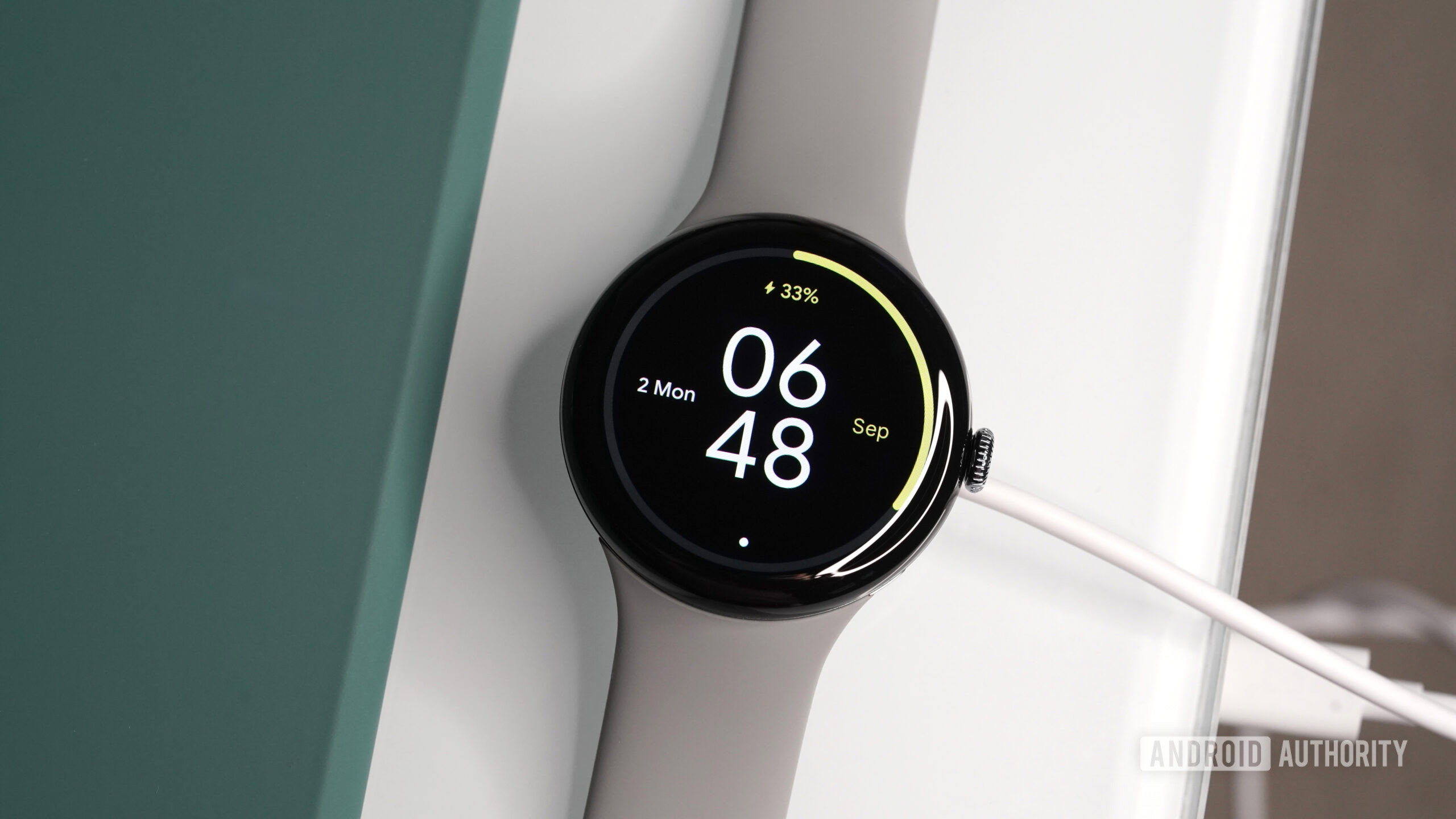
This year, with the Google Pixel Watch 3, we saw insane battery life gains year-over-year. Yes, the fact that Google made a larger version of the watch with a higher-capacity battery helped a lot, but even the model that didn’t increase in size saw battery life gains, thanks to better software optimizations. We knew this was coming, too, because Google flat-out told us at Google I/O that it was prioritizing battery life over all else for upcoming Wear OS 5 watches.
What’s more, Google didn’t upgrade the processor in the Pixel Watch 3 — it just kept the same one as we had the previous year in the Pixel Watch 2. We saw something similar with the Galaxy Watch 7, which has a different processor than the Galaxy Watch 6 but with only minor upgrades in performance. Either way, I’m totally OK with this. After all, the processing power of 2023’s watches was fine, but battery life could have been way better across the board. In Google’s case, it smartly kept most of the hardware the same and just made battery life better. In Samsung’s case, it stumbled a bit out the gate, but the battery life on its 2024 watches is looking good nowadays.
Smartwatches rarely have significant performance gains year-over-year, but battery life gets consistently better.
This seems like such a simple thing, but we almost never see this in other product categories. We certainly don’t see any major smartphone launches in which this year’s phone has the same processor as last year’s. And why not? Why won’t companies re-use last year’s chip but make it so this year’s phone is better overall, outside of raw performance?
I wish we saw this kind of thing across all tech industries. We don’t need a new, faster processor every year. We need a device that is better overall at the things we actually use them for.
Performance gains make me yawn, but battery life gains grab my attention
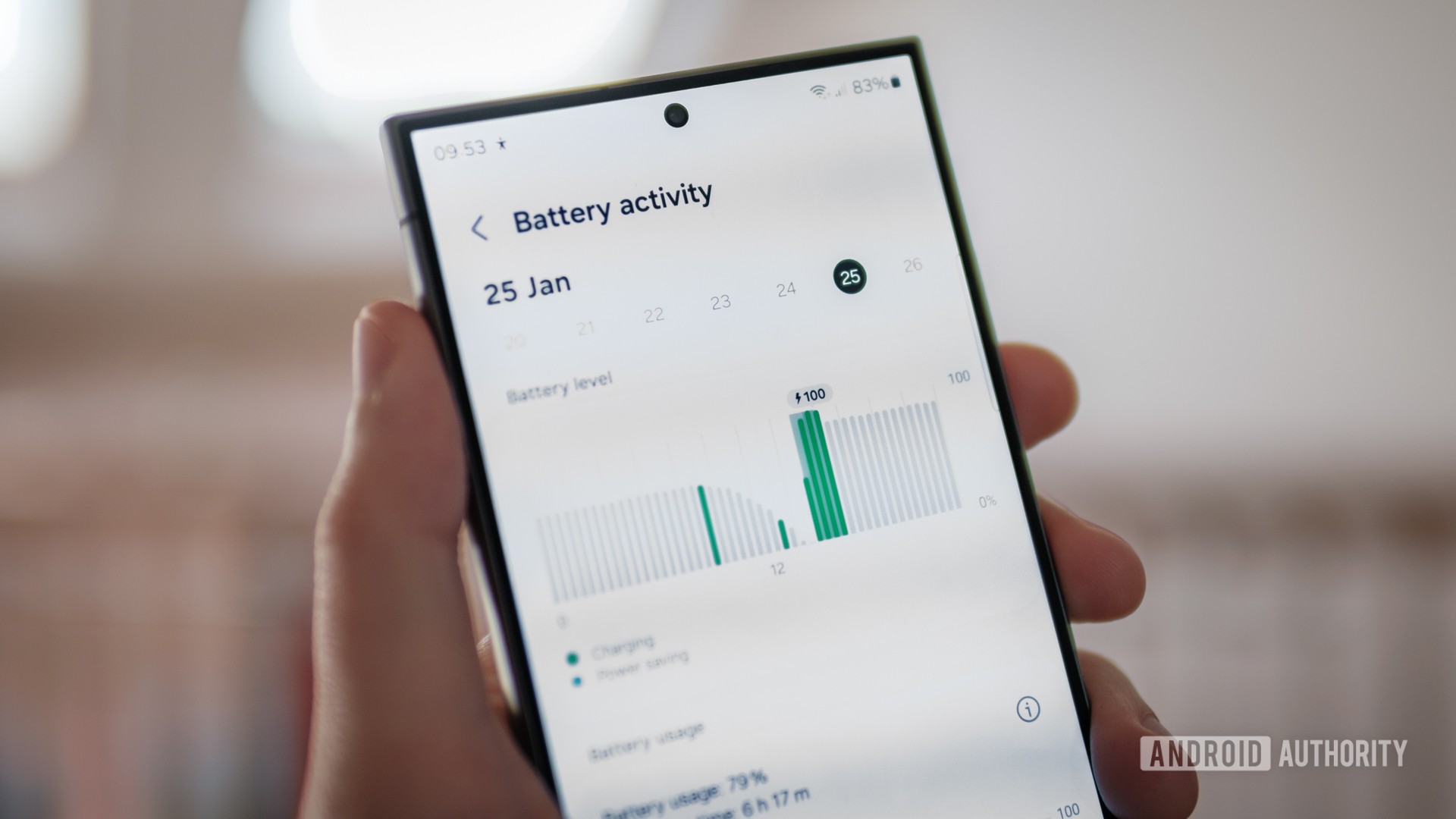
Let me finish this up by saying I don’t think companies should stop trying to make devices perform better. Having higher performance numbers on phones, laptops, and watches is always a good thing. All I’m saying is that that shouldn’t be the top-most thing on the list. Battery life should be at the same level, if not higher up in priority.
Thankfully, things appear to be going in this direction. Thanks to internal company leaks obtained by Android Authority, we know that Google is focusing heavily on fixing battery life issues with the Tensor chips that appear in Google Pixel phones. In fact, it even referred to its own battery life results as “poor” during internal studies, suggesting this will be a big concern going forward.
Evidence already shows that companies are putting a larger emphasis on power efficiency, so that's great news.
We also are seeing great results so far from the Qualcomm Snapdragon 8 Elite regarding battery life. It’s still early days on that one, but we’re seeing battery life gains on top of performance gains, proving that you can have your cake and eat it, too (even if that means the chip needs to be exorbitantly expensive). We’re excited to see how this fares in the phones launching in the United States with this new processor, including the OnePlus 13 and the Samsung Galaxy S25 series.
The one wildcard here is on-device AI processing. With AI becoming ubiquitous across all of tech, products will need to have enough processing power to perform those AI tasks without using the cloud. However, I still haven’t seen an on-device AI feature that I couldn’t live without, and most people seem to be ho-hum about AI being as game-changing as the tech industry wants us to think it is. Maybe, in the future, when AI has really taken off to the point where on-device processing needs to take significant leaps to keep up, I’ll change my stance a bit. For now, though, I’d still rather have better battery life than any AI trick.
As we see more development of on-device AI features, processing needs might change, which might alter my opinion. For now, though, AI doesn't impress me much.
I’ll leave you with a question: Can you imagine a world in which every smartphone, laptop, and smartwatch you buy lasts for two full days without a charge as the default? That is not a far-fetched idea — we could have this right now. The problem is that every time a chip increases in performance, it almost always uses more power to do it. To their credit, OEMs are making battery life better. If you go back a few years, battery life on most gadgets was worse. However, performance gains are going upward way, way faster than battery gains, for no other reason than that’s what companies think sells the best.
All companies need to do is temper these gains so that battery life keeps a distinct advantage. Most importantly, consumers need to buy those products because they prioritize battery life over most other things.
I’m looking forward to 2025, as I hope that it will be a big year for pushing the limits for battery life in all tech categories.